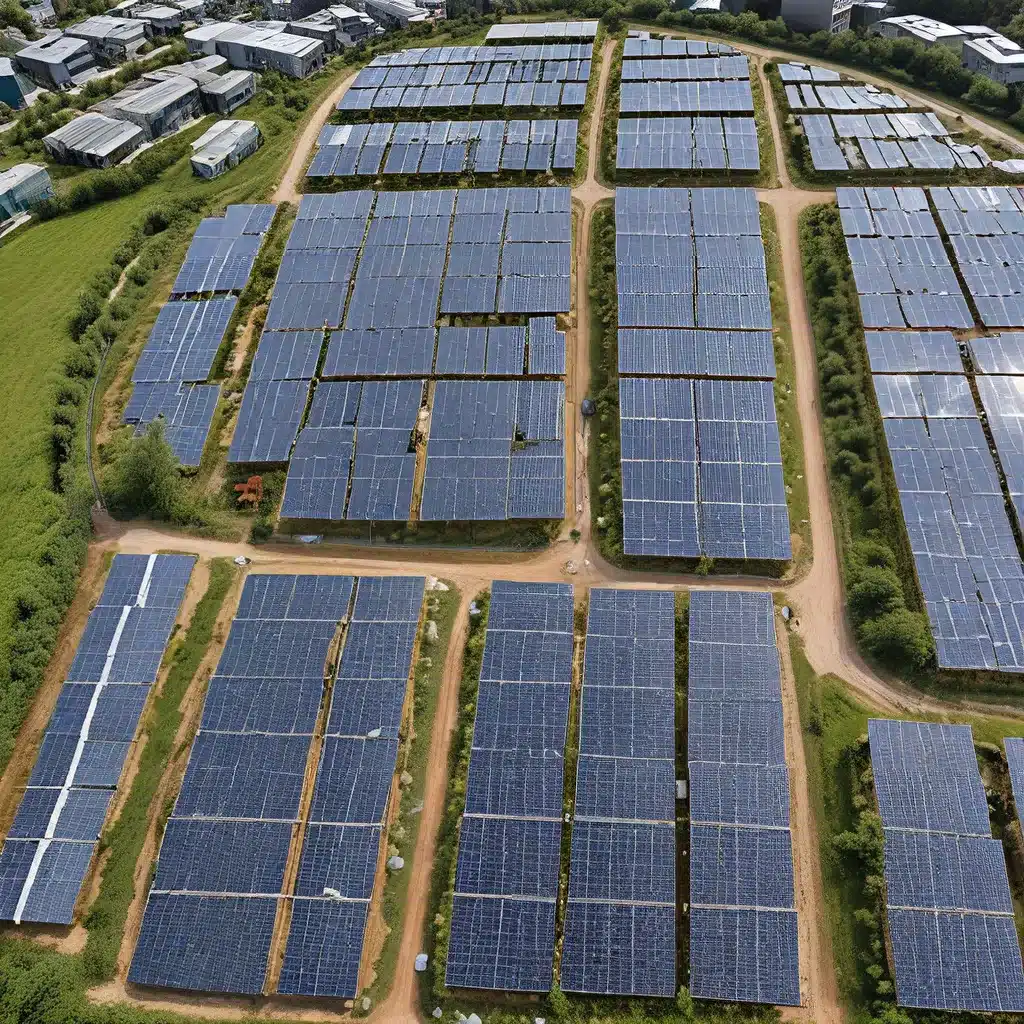
The Rise of Decentralized Energy Solutions
In a world grappling with the pressing challenges of climate change, energy security, and soaring costs, communities around the globe are seeking innovative solutions to take control of their energy destiny. Enter the era of microgrids – decentralized energy systems that are revolutionizing the way we power our homes, businesses, and communities.
Microgrids are self-sufficient networks that operate independently from the traditional grid, generating, distributing, and managing energy within a defined geographical area. This decentralized approach offers a myriad of advantages, transforming the way we think about energy and empowering local communities to shape their own sustainable, resilient, and community-driven energy future.
Redefining Energy Reliability
One of the most compelling benefits of microgrids is their ability to provide reliable, long-duration power even during grid disruptions. Unlike the centralized grid that relies on large power plants, microgrids incorporate a diverse range of distributed energy resources (DERs) like solar panels, wind turbines, and fuel cells. This decentralized nature allows for the efficient integration of renewable energy sources, reducing dependence on fossil fuels and increasing the share of clean energy in the mix.
The integration of energy storage systems, such as batteries and hydrogen fuel, further enhances the resilience of microgrids. These storage solutions enable microgrids to operate effectively during periods of low renewable energy production, ensuring a continuous supply of power even when the main grid fails. This resilience is a game-changer, especially for critical infrastructure like hospitals, emergency services, and essential community centers, which can continue operating during grid outages.
Empowering Local Sustainability
The true power of microgrids lies in their ability to empower local communities and drive sustainable development. By generating, distributing, and managing energy within a defined geographical area, microgrids foster a sense of community ownership and engagement. Residents can actively participate in energy production, making informed choices about their energy sources and contributing to the local energy ecosystem.
This community-centric approach not only enhances energy security but also promotes sustainable practices and environmental stewardship. Microgrids enable the seamless integration of renewable energy sources, significantly reducing greenhouse gas emissions and contributing to global efforts in combating climate change. The resulting improvements in air quality, especially in disadvantaged communities situated near industrial zones or transportation hubs, can lead to measurable health benefits for local residents.
Fostering Economic Resilience
Microgrids also play a crucial role in stimulating local economies and creating resilient, sustainable communities. By keeping energy spending within the community, microgrids bolster economic growth and support local livelihoods. Job opportunities are created during the installation, maintenance, and operation of these systems, providing employment and strengthening the community’s economic foundation.
Moreover, the peer-to-peer energy trading enabled by microgrids ensures that producers, such as homeowners with solar panels, receive fair compensation for the excess energy they generate. This incentivizes renewable energy production and promotes a sense of ownership and cooperation among neighbors, further reinforcing the community’s energy resilience.
Overcoming Challenges
Despite the immense potential of microgrids, their widespread adoption faces several challenges that require collaborative efforts to overcome. Navigating the complex and often disparate regulatory frameworks across different jurisdictions can be a significant hurdle, necessitating streamlined policies and regulations to encourage microgrid deployment.
The initial capital costs associated with microgrid installation can also be a barrier, underscoring the need for innovative financing models and government support to make these solutions more accessible, especially for disadvantaged communities. Addressing the technical complexities of integrating microgrids with the traditional grid requires specialized expertise and knowledge-sharing initiatives to ensure seamless integration and optimal performance.
Crucially, the success of microgrid implementation hinges on proactive community engagement and participation. Fostering open communication, addressing local concerns, and involving community members in the decision-making process are essential for building trust and securing buy-in from the people who stand to benefit the most.
Microgrids and the Future of Energy
As the world grapples with the escalating challenges of climate change, energy security, and economic disparities, microgrids emerge as a beacon of hope, empowering communities to take control of their energy destiny. By enabling the integration of renewable energy sources, enhancing resilience, and fostering sustainable economic development, these decentralized energy systems are poised to play a pivotal role in shaping the future of energy.
Through a collaborative effort involving policymakers, industry leaders, and engaged communities, the barriers to microgrid adoption can be overcome, paving the way for a more equitable, sustainable, and community-driven energy landscape. As we continue to witness the transformative impact of microgrids, it’s clear that these innovative solutions are not just a promising trend, but a fundamental building block in the transition towards a cleaner, more resilient, and more empowered energy future.
So, why not explore the possibilities of Firewinder’s renewable energy solutions and see how they can help your community harness the power of microgrids and community energy? Together, we can write the next chapter of the energy revolution, one that puts the power back in the hands of the people.

